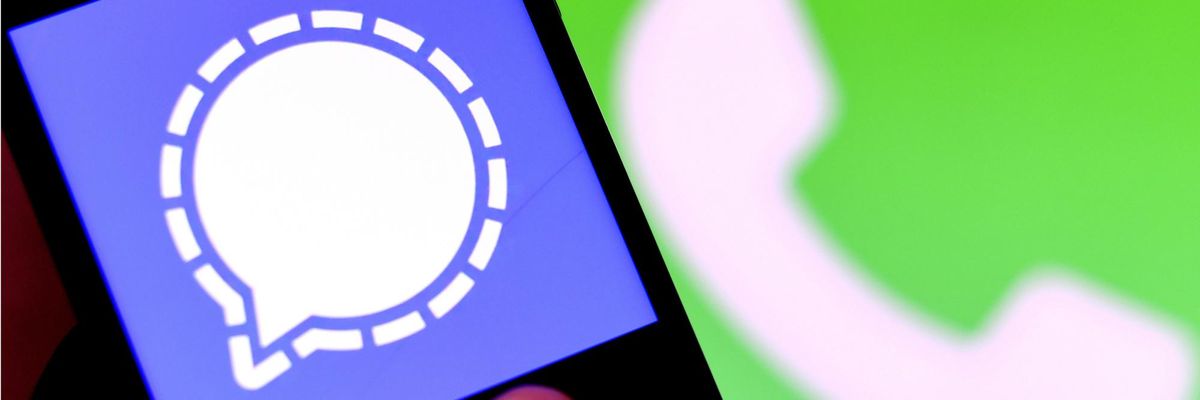After a coalition of digital rights and other groups launched a campaign on Monday aimed at thwarting Facebook's planned privacy rollback on its popular WhatsApp messaging application, competitor Signal--which does not collect user data--on Tuesday began trolling the social media giant and its ubiquitous data collection in a tongue-in-cheek ad illustrating the intrusiveness of the practice.
"The way most of the internet works today would be considered intolerable if translated into comprehensible real world analogs, but it endures because it is invisible."
--Jun Harada, Signal
Amid a viral messaging campaign that has included the revelation that Facebook CEO Mark Zuckerberg "leads by example" by using the encrypted app, Signal created a multi-variant targeted ad that Jun Harada, the company's head of growth and communication, said is "designed to show you the personal data that Facebook collects about you and sells access to."
Alas, Facebook--which Signal says blocked the ad--"was not that into the idea," Harada wrote in a blog post, adding that the social media titan "is more than willing to sell visibility into people's lives, unless it's to tell people about how their data is being used."
"Being transparent about how ads use people's data is apparently enough to get banned; in Facebook's world, the only acceptable usage is to hide what you're doing from your audience," Harada continued. "So, here are some examples of the targeted ads that you'll never see on Instagram. Yours would have been so you."
"Companies like Facebook aren't building technology for you, they're building technology for your data," wrote Harada. "They collect everything they can from FB, Instagram, and WhatsApp in order to sell visibility into people and their lives."
"This isn't exactly a secret, but the full picture is hazy to most--dimly concealed within complex, opaquely rendered systems and fine print designed to be scrolled past," he added. "The way most of the internet works today would be considered intolerable if translated into comprehensible real world analogs, but it endures because it is invisible."
Signal's popularity was already soaring before the WhatsApp privacy rollback. According to Business of Apps, the number of Signal users skyrocketed from around half a million at the end of 2019 to about 40 million this January.

